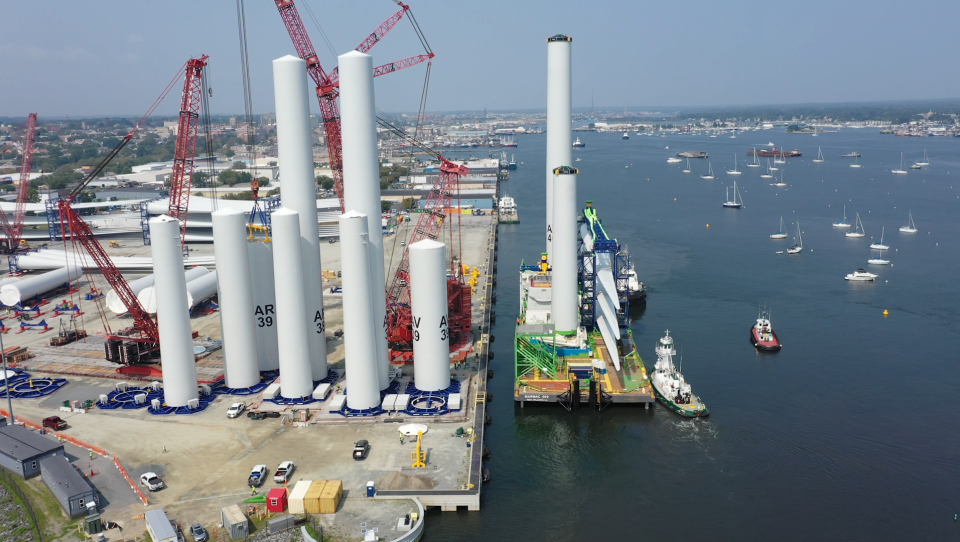A Massachusetts economic development agency has won a half million dollar federal grant aimed at reducing emissions and measuring air pollution at the New Bedford port, the U.S. Environmental Protection Agency announced Tuesday.
The money for the New Bedford Marine Commerce Terminal — an offshore wind facility being developed by the Massachusetts Clean Energy Center — is one of 55 grants awarded by the EPA as part of the Biden administration’s nearly $3 billion Clean Ports initiative.
Grants were spread across 27 states and territories meant to improve the health of residents living near ports who are exposed to high rates of air pollution.
“We will develop a robust emissions reduction strategy,” said Emily Reichert, the chief executive of the Massachusetts Clean Energy Center, a state-run economic development agency. “This grant ... ensures that as the port expands, it continues to operate in a way that protects air quality and public health.”
Two other ports in New England won Clean Ports grants: $5.3 million to cut diesel emissions at the New London State Pier in Connecticut; and $1 million to develop emissions inventories and study electrification at four ports in Maine.
Massport — which has aggressively expanded its cargo and cruise ship operations in Boston Harbor — failed in its bid for the same grant pool. The quasi governmental agency had applied for $280 million in Clean Ports funding to reduce emissions and expand electrification at its container and cruise terminals.
Boston environmentalist Kyle Murray — a policy director at the clean energy nonprofit Acadia Center — told GBH News that he is hopeful that Massachusetts officials will do more to decarbonize aspects of marine shipping around Boston. He has been calling for local leaders to address the region’s growing shipping industry.
“I am quite disappointed with this outcome,” Murray said.
The EPA’s push to cut port emissions through electrification comes as public health research points to diesel emissions near marine ports causing respiratory illnesses, heart disease and cancer. Communities around big shipping ports on Boston Harbor and in Providence face similar issues, problems covered in an ongoing investigation by the GBH News Center for Investigative Reporting.
“Our ports are the backbone of our economy,” said Michael Regan, EPA administrator. “But we cannot overlook the challenges faced by the communities that live and work near these ports.”
Community members and environmental justice activists have also pushed back against the pollution, calling for a shift from diesel fuels to electric power and for clear assessments of existing pollution through emissions inventories.
The EPA grant for New Bedford will pay for an emissions study around the 30-acre offshore wind facility.
In Boston, Massport has not yet conducted an emissions inventory of its marine ports but says it plans one soon.
The agency told GBH News that it also plans to apply for future grants to reduce emissions with a focus on providing electric shore power for ships at port, enabling them to switch off fuel-burning engines.
“Investing in ship-to-shore power is essential for both our business operations and the well-being of our surrounding community,” Massport said in an emailed statement.





